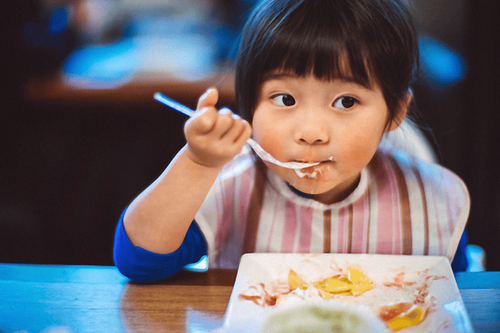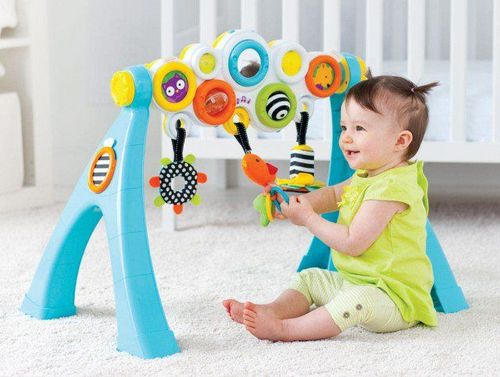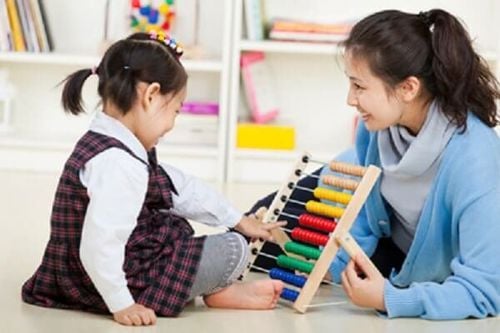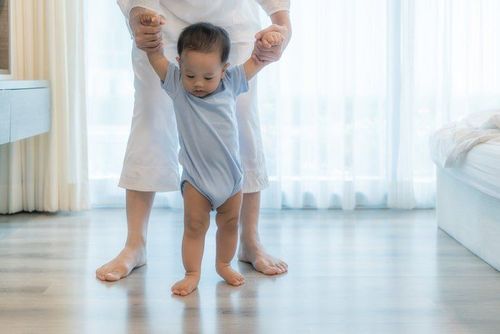This is an automatically translated article.
The article is professionally approved by Doctor Nguyen Thai Ngoc Chau - Department of Pediatrics - Neonatology - Vinmec Phu Quoc International General HospitalAnd Master, Doctor Huynh Bao Toan - Department of Pediatrics - Neonatology - Vinmec Nha Trang International General Hospital. The doctor has 13 years of experience in the field of Pediatrics.
At the age of 13 months, children have developed well both intellectually and emotionally. You may also be concerned about your child's anorexia, which is completely normal because now he wants to decide when and what he will eat. In this article, we will provide useful information about baby development at 13 months postpartum and what parents can help their baby's development.
1. What will my toddler be able to do this month?
At 13 months postpartum, our little explorer is becoming more and more curious and independent. Children can already muster up the courage to take the first steps on their own. Parents or caregivers should regularly encourage and encourage children to make them more interested and excited, motivating them to keep trying to learn to walk and perfect other skills.Most 13-month-olds can already hold toys and drop them in the toy bin. Children will feel really interested in this work and will repeat it many times. Many 13-month-olds are even able to masterfully use their hands to draw pencil scribbles.
2. My child can't walk yet. Should I be worried?
There's certainly no need to worry about this. If a 13-month-old baby can't walk on his own and still needs to cling to other objects to support himself, it just makes sense that walking on his own will take longer. Toddlers can take a few steps when someone else leads them, but if they don't, that's completely normal. There are babies who can't walk at 17 or 18 months or even later.Whether your baby is crawling, shuffling things around or throwing toys around the house, it shows that he is moving. Toddlers will be able to get where they want to go on their own without adult support. The world seems to open up to younger children. That's fun, but it also comes with some dangers kids can run into. Falling or hitting other objects in the house is inevitable. This leaves parents or caregivers feeling a bit anxious.
Babies who learn to crawl early tend to walk on their own earlier. So if your baby can't walk yet, don't worry, try to be patient. The baby will also be able to walk on his own.
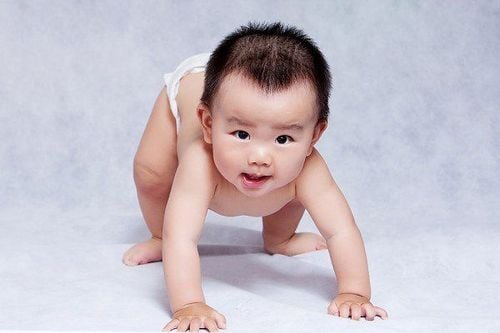
Một số trẻ 13 tháng tuổi không thể tự đi lại một cách độc lập
3. How can I encourage my toddler to walk?
Let the child move on his own. Distance traveled is not really important in this case. Do not try to force your child to learn to walk. Children will enjoy it more if they are encouraged by adults and always try to go as far as possible. Sometimes, babies also surprise themselves and their parents with how far they have traveled.13-month-old babies will feel very happy if their parents support them in learning to walk. Parents and relatives of children should sit down, extend their arms, smile and encourage the child to walk towards them. Sit a little further away from your child each time so he can increase the distance he can walk.
When children are able to walk, they may like toys that can be pushed. Choose a toy truck for your child and arrange the space in the room so that it is spacious enough, the child can play the game of pushing the cart all day without getting bored. It is best not to use baby walkers. These vehicles are very easy to overturn, both causing injury to the child and not providing too much support in helping the baby learn to walk.
4. Can a 13-month-old baby feed himself?
Similar to being able to use their feet to walk, 13-month-old babies can also use their hands maturely. Baby can pick up a spoon to scoop food and put it in his mouth, although the movements are not precise and cause food to splatter. This makes it difficult for parents to find a balance between letting their children explore freely while ensuring they are provided with enough nutrients to grow13-month-old babies after checking out the portion foods can be happily accepted so that you help your baby put the food in his mouth. If your child asks to eat on his own, prepare foods that he can hold and put in his mouth. Besides, it is necessary to pay attention to the foods the baby likes to eat and does not like to eat to make adjustments in the diet accordingly.
5. Food for 13-month-old babies
Good eating habits now last a lifetime so aim for three well-balanced meals a day plus a few healthy snacks and the usual types of vitamin A, vitamin C and vitamin D.
Thực phẩm cho trẻ 13 tháng tuổi cần đảm bảo cân bằng giữa các vi chất cần thiết
Protein rich foods include meat, fish, eggs, lentils, beans and tofu. A portion of these foods should be offered to your child as part of each main meal.
Provide water for 13 months old baby with meals, snacks and in between and avoid any sweetened drinks. Avoid giving your child foods that are high in sugar and fat such as crisps, candy, chocolate, and cakes. These should only be offered occasionally as they are high in calories but provide few nutrients for your little one. Sugary foods are also a cause of tooth decay.
There are many things you can do during these early years to help your little one develop a healthy relationship with food, for example avoiding them as a reward or to soothe them. Try to sit down together as a family to eat, if possible around the table, instead of eating together with other activities, such as watching TV.
6. How can children talk?
Children this age are usually able to understand and babble in simple words like dad, mom or grandma and some other words they can hear from adults. 13-month-old babies don't need a rich vocabulary to express their desires. When they want to go down or up, they will point in the corresponding direction. When babies want more attention from their parents, they will pull on mom or dad's shirt. Children this age can also understand most of the simple words that parents or caregivers use every day.Parents can also help their 13-month-old by talking to them as much as possible. Teach your baby to use language by pointing out the names of everyday objects or the names and colors of fruits or vegetables prepared for a meal or counting the steps of stairs when climbing. up them. In short, it is necessary to continuously communicate with children to support them to maximize their language skills.
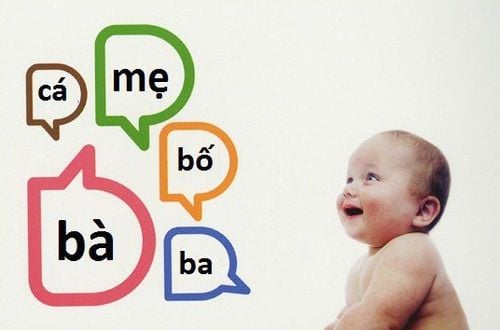
Trẻ 13 tháng tuổi có thể tập nói những từ cơ bản dễ phát âm
7. How many hours does your baby need to sleep?
All the things a 13-month-old explores, develops, and thinks about can tire his body. Children will need an average of 14 hours of sleep each day and 11 of those hours should be at night. This means that kids this age still need one to two naps a day to recharge.Parents and caregivers should try to maintain a regular bedtime routine even when not at home. Things that support a child's bedtime routine can be bathing, putting on pajamas, reading stories or cuddling... These actions can make it easier for a child to fall asleep. In a world full of new and exciting things, predicting when and how or when something will happen can help parents keep their babies safe during this time.
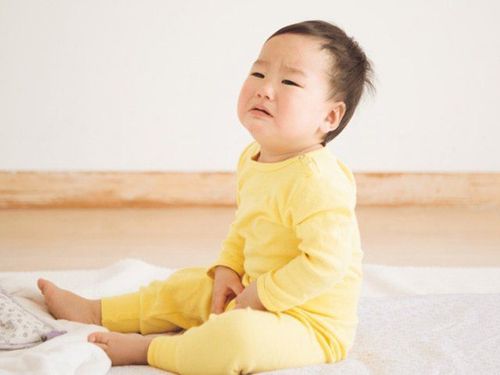
Trẻ 13 tháng tuổi có thể biểu hiện cảm xúc qua nét mặt
8. Developing physical activity for 13-month-old children
MoveGive your baby an early walk that can walk forward or a little while holding your hand, or can take a step or two on his own. Learning how to balance yourself is an important part of walking, so try not to rush to help when your little one falls, unless he or she is hurt. Encourage children to stand on their own feet so they develop confidence. There's no rush, though, and most babies can do this.
Senses, communication and emotions
Early talkers can pronounce 1 - 2 words. Most children have not yet reached this milestone although their nonverbal communication will be more - for example they will pull on your clothes to get your attention, point to what they want, push away what the child doesn't want, or wave and scream with frustration until you guess correctly. Children will also continue to experiment with sound sequences of different syllables and combine sounds with gestures.
Entering the second year of development after birth, babies can already walk on their own two feet. The desire to explore and learn about the world also increases accordingly. During this period, children also gradually develop language skills, so parents should spend as much time as possible to talk to their baby. In fact, babies can understand most common words parents say to them and respond with gestures and facial expressions. Sleep is also very important for a 13-month-old baby. It helps children have enough energy to continue to develop physically as well as intellectually.
To help 13-month-old children develop their best mind and body, parents should supplement their children with supporting products containing lysine, essential micro-minerals and vitamins such as zinc, chromium, selenium, group vitamins. B helps to fully meet the nutritional needs of children. At the same time, these essential vitamins also support digestion, enhance nutrient absorption, help improve anorexia, help children eat well, and develop comprehensively.
Please regularly visit Vinmec.com website and update useful information to take care of your baby and family.
Reference source: babycentre.co.uk; emmasdiary.co.uk; parents.com





